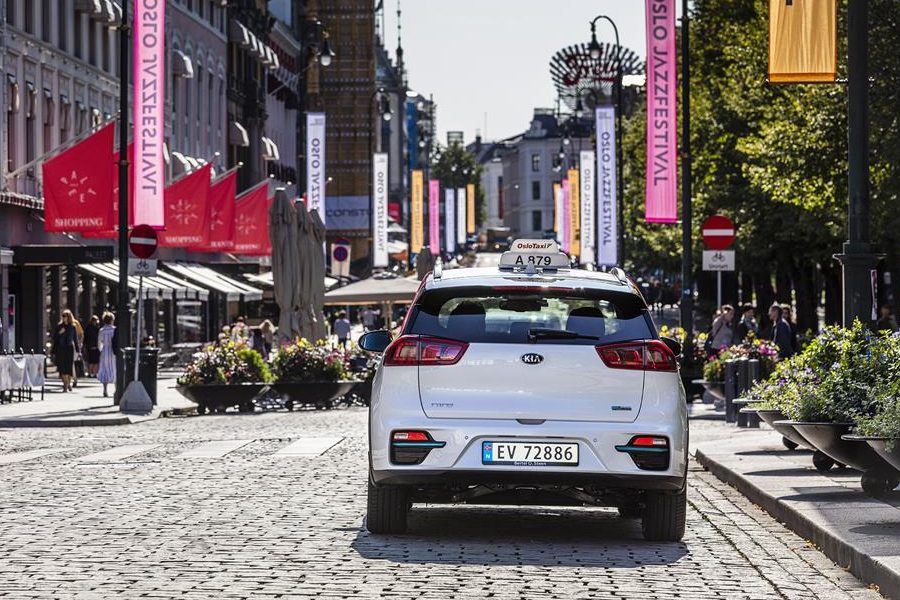Only battery-electric taxis are allowed in Oslo
Some time ago, the taxi industry had called for the mandatory use of electric taxis in Oslo to be postponed until 2027, citing a lack of charging facilities, but the city council refused to postpone the decision. The new regulation states: “Taxis driving in Oslo may no longer have any emissions from combustion engines after 1 November 2024.” The only exception to this rule is taxi journeys beyond the borders of Oslo.
The number of BEV registrations in the taxi sector has been high in Norway for years. Last year, BEV market penetration throughout the country was 88 per cent – slightly higher than the 82.4 per cent of new car registrations overall. In Bergen and Stavanger, all new taxis were electric cars in 2023. In Trondheim, the proportion of new taxis that were electric was 97 per cent, while in the capital Oslo, it was 90 per cent. These figures come from the Norwegian Public Roads Administration.
The background to the high number of Norwegian registrations in this area is that many county councils have set deadlines by which all taxi licences must be electric – as in Oslo. The requirements mainly apply to car taxis, although there are also exemptions.
A similar initiative was announced this summer with Shanghai planning to electrify its bus and taxi businesses by 2027, while other European cities such as Athens or the UK taking a more soft approach and supplying subsidies for electric taxis.
elbil.no, oslo.kommune.no (both in Norwegian)





0 Comments